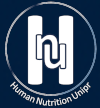Former funded projects
Former projects funded through competitive international calls
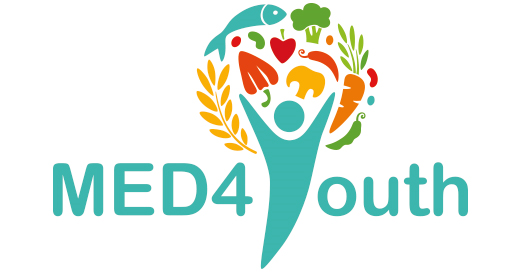 |
Title: MED4Youth - Mediterranean Enriched Diet for tackling Youth Obesity Programma/call: PRIMA - Initiative Partnership for Research and Innovation in the Mediterranean Area, Section II, 2018 Duration: 2019-2023 PI: Daniele Del Rio HNU members: Alice Rosi, Elena Bertolotti, Perla Degli Innocenti, Vicente Agulló, Nicole Tosi, Claudia Favari, Pedro Mena, Francesca Scazzina Other participants: Federico Bergenti, Eleonora Iotti, Davide Beretta e Susanna Esposito (UNIPR), Maddalena Petraroli e Maria Elisabeth Street (AOUPR), EURECAT (Spagna, coordinatore), University of Coimbra (Portogallo), SHIKMA (Israele), Scientific Food Center (Giordania) e Novapan (Spagna) Sito web: med4youth.eu/ |
|
The MED4Youth project has the aim to strengthen the link between the Mediterranean Diet and the health benefits against youth obesity and associated cardiovascular disease risk factors. The project has also the objective to elucidate whether the health effects of Mediterranean Diet are associated with changes in gut microbiota and gut-derived metabolites. Project partners carry out a multi-center interventional study targeting 240 adolescents with obesity from different Mediterranean countries (Italy, Spain and Portugal) and including Mediterranean products. The study is complemented with an educational web-application to encourage and sustain healthy behaviours. |
 |
Project: PREVENTOMICS - Empowering consumers to PREVENT diet-related diseases through OMICS sciences Call: H2020-SFS-2018-2020 (cordis.europa.eu/project/id/818318) Period: 2018-2022 PI UNIPR: Daniele Del Rio HNU partecipants: Claudia Favari, Pedro Mena, Alice Rosi, Furio Brighenti, Letizia Bresciani, Francesca Scazzina Other partecipants: Eurecat (coordinator), ALDI, Alimentòmica, Onmi, Simple Feast, METEDA, Carinsa and Practio, University of Southampton, Institute of Communication and Computer Systems, Erasmus Universiteit Rotterdam, Leitat, Wageningen University, Uniwersytet Jagiellonski, Universiteit Maastricht, Osteoarthritis Foundation International (OAFI), Spanish Consumers Organization (OCU) & Spanish Standardization Association (UNE). Web: preventomics.eu/ |
|
Preventomics has developed a platform with a Decision Support System tool that integrates genetic, nutritional, biochemical, physiological and behavioural factors to assess the unique metabolic profile of individuals using machine-learning techniques. The platform delivers personalised nutritional and lifestyle plans taking advantage of Information and Communication Technologies (ICT) to ultimately drive sustainable healthy behaviour change and thereby, prevent obesity-related chronic diseases. The HNU has been particularly active in the development of a validated platform for the analysis of biomarkers of food intake, allowing a quick, objective dietary assessment. |
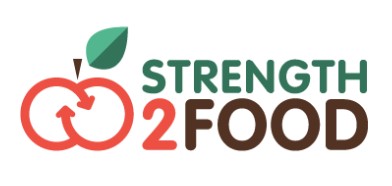 |
Project: STRENGTH2FOOD - Strengthening European Food Chain Sustainability by Quality and Procurement Policy Programma/call: H2020-SFS-2014-2015 (cordis.europa.eu/project/id/678024) Period: 2016-2021 PI UNIPR: Filippo Arfini HNU partecipants: Beatrice Biasini, Alice Rosi, Daniele Del Rio, Francesca Scazzina Other partecipants: Maria Cecilia Mancini, Michele Donati, Antonio Bodini, Cristina Mora, Davide Menozzi, Mario Veneziani, Antonello Zangrandi & Gianluca Lanza (UNIPR). Web: strength2food.eu/ |
|
Strength2Food identifies and implements strategies for upscaling: creating new and expanding existing markets for quality food products and fostering the development of an ‘economy of quality’. To do that, Strength2Food aids policy makers and other relevant stakeholders in improving the effectiveness of current policies and developing new ones on food quality designations and public sector food procurement to enhance their sustainability and promotion of healthy and nutritious diets. The role of the HNU has been particularly relevant in the study of the sustainability and quality of school canteens. |
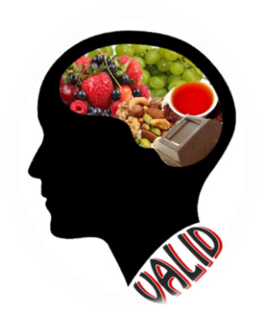 |
Project: VALID - Valerolactones and healthy Ageing: LInking Dietary factors, nutrient biomarkers, metabolic status and inflammation with cognition in older adults Call: JPI ERA-HDHL: Biomarkers in Nutrition and Health, co-funded by the Italian MIPAAF Period: 2017-2019 PI UNIPR: Daniele Del Rio HNU partecipants: Donato Angelino, Luca Calani, Alice Rosi, Pedro Mena Other partecipants: Ulster University (coordinatore, Regno Unito) e Trinity College Dublin (Irlanda). Web: jpi-valid.com/ |
|
VALID aimed to validate plasma phenyl-γ-valerolactones as stable biomarkers of catechin/procyanidin-rich foods and demonstrate their association with markers of inflammation and metabolic health, and ultimately cognitive function, in an ageing European population. To do this, we utilized data and performed new analysis on samples from the Trinity, Ulster, Department of Agriculture Study (TUDA) cohort study, a unique resource designed to assess nutrition and ageing in 5,186 adults aged 60-102 years recruited from the UK and Ireland, and including a range of existing biomarkers, metabolic health status and cognitive measures. |
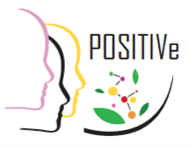 |
Project: POSITIVe - Interindividual variation in response to consumption of plant food bioactives and determinants involved Call: COST Action FA1403 (cost.eu/actions/FA1403/) Period: 2014-2018 PI UNIPR: Daniele Del Rio HNU partecipants: Pedro Mena, Margherita Dall’Asta, Daniela Martini, Letizia Bresciani, Michele Tassotti Other partecipants: INRAE (France), CEBAS-CSIC (Spain) & many others. |
|
To combat the burden of cardiometabolic disease, which constitutes a major public health issue in Europe, it is of crucial importance to develop efficient strategies that target the dietary behaviours of European consumers and improve the food supply. POSITIVe specifically addressed inter-individual variation in bioavailability and physiological responses to consumption of plant food bioactives in relation to cardiometabolic endpoints. This Action coordinated a multidisciplinary and multisectorial European network, harnessing and combining the currently fragmented knowledge and ensuring the optimal translation of findings into applications. |


